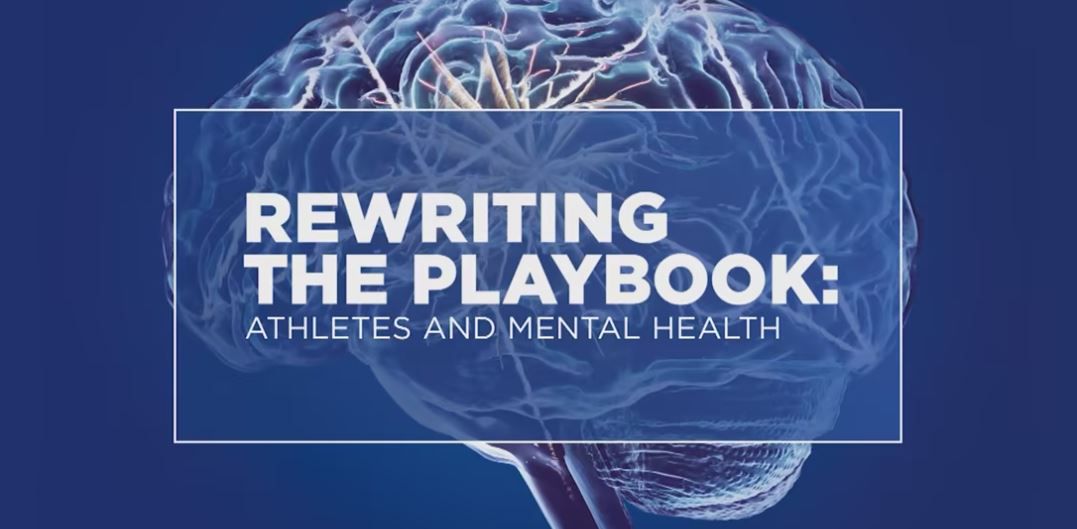After a tumultuous year during the pandemic, people around the globe were excited to hear that the 2020 Tokyo Olympics would be held in the summer of 2021. But while much of focus had been on the athletes returning to the world stage, another topic branched out of the games — one that athletes around the globe are increasingly raising awareness around: Mental health.
While the topic has been talked about in the past, the way athletes struggle with their mental health didn't get much attention until the Tokyo Olympics, when reigning Olympic Gymnast Simone Biles pulled out of a few competitions.
“I have to do what’s right for me and focus on my mental health, and not jeopardize my health and well-being,” Biles said during the games. “It was like fighting all those demons."
The move was praised and received backlash at the same time, but figures like Olympian Michael Phelps, President Joe Biden and hundreds of other athletes supported Biles and even called attention to their own personal struggles with mental health.
“Mental health over the last 18 months is something people are talking about,” Phelps said during the games, showing support for the gymnast. “We’re human beings. Nobody is perfect. So yes, it is OK not to be OK."
During the Spectrum News special "Rewriting the Playbook: Athletes and Mental Health," we go beyond the headlines to the real story. We spoke with high-profile figures, like Ohio State University football's Ryan Day and former U.S. Olympic Gymnast Dominique Moceanu.
That struggle is extremely common among athletes here in Ohio and beyond, handling the every-day pressure to perform, dominate and succeed in their support.
"There's a lot of guys that deal with it. There's just a lot coming at these guys," Day said. "We want to make sure that they have everything in place to build that foundation for when things go well or when things don't go so well."
Day said the university is trying to implement more resources to help athletes' mental health amid ongoing stressors.
Dr. James Houle, a sports psychologist at the Ohio State University, said much of the problem coming from athletes is management between school, work, the sport and their own life outside of all of that.
"They're not just going to practice; they're doing study table and they are icing their knee, and they're talking to their coach and meetings and all these different things," Houle explained. "And then you layer on top of that social media, it feels like a lot of pressure. And so they're talking about 'How do I manage all of that?' What do you tell them?"
Houle said he is a huge advocate of mindfulness.
"Our ability to pay attention to the present moment on purpose, without judgment, because we can get so pulled up into our thoughts are pulled backwards into what happened — the 'what ifs' that it becomes very difficult to pay attention to just what's actually happening," he said.
Coach Adam Jones of Cincinnati United Premier soccer club opened up about his family struggles with mental illness.
"I had a younger brother. His name was Alex," Jones said. "He's two years younger than me. He suffered from Crohn's disease, which is a disease in your intestinal track, and Alex started to not be able to perform in sports like he used to. His grades were suffering because he wasn't in school very much. And he started to self-medicate with drugs and alcohol."
In the summer of 2009, Alex died by suicide.
"We didn't necessarily see that coming. Back then they didn't really talk about mental health about suicide. It wasn't a story. It was kind of taboo," Jones said.
Throughout the special, guests talked about how mental health plays a role in their lives, and possible solutions to help athletes who may be struggling. You can watch the full special in the clips above.
The half-hour special will air only on Spectrum News 1 and the Spectrum News 1 app:
Dec. 1 – 8 p.m.
Dec. 2 – 3 p.m.
Dec. 5 - 11 a.m. and 8 p.m.



